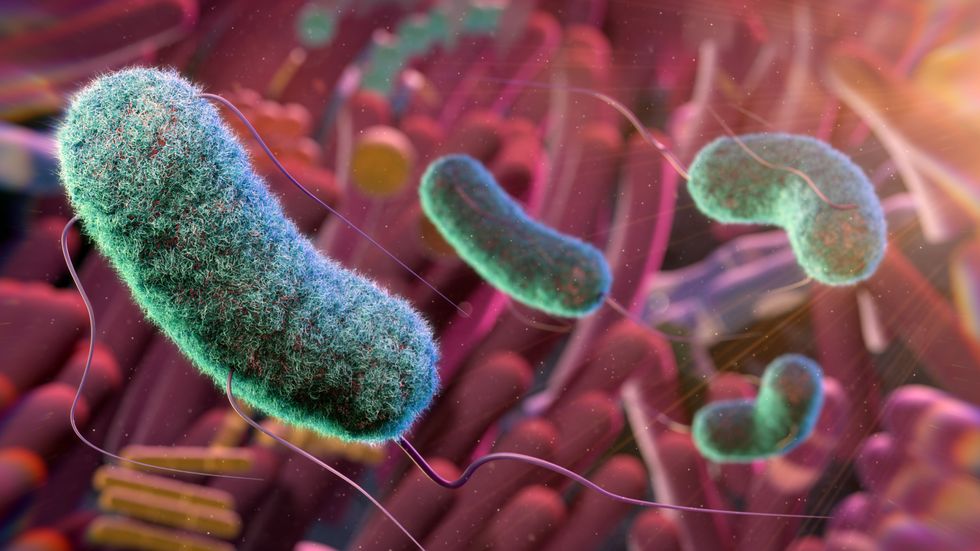Deadly bacteria which causes food poisoning could be powerful weapon to fight bowel cancer
Experts are particularly interested in combining bacterial therapies with existing cancer treatments that help immune cells target tumours
Don't Miss
Most Read
Trending on GB News
Scientists have made a breakthrough discovery showing how salmonella bacteria could be transformed into a powerful weapon against bowel cancer.
Researchers have found that salmonella, typically known for causing food poisoning, has been depleting a crucial protein that immune cells need to function properly.
The discovery, funded by Cancer Research UK, could lead to new treatments that harness the bacteria's cancer-fighting potential.
Experts are particularly interested in combining bacterial therapies with existing cancer treatments that help immune cells target tumours.
The key finding centres on how salmonella affects a protein called asparagine, which plays a vital role in enabling T cells - the body's natural defence against disease - to fight cancer cells.
Using mice models, researchers discovered that salmonella was preventing T cells from effectively combating cancer cells by depleting asparagine, an essential amino acid.

Salmonella has been depleting a crucial protein that immune cells need to function properly
GETTY
This finding helps explain why previous attempts to use bacterial therapy against cancer haven't reached their full potential.
Dr Alastair Copland, research fellow in immunology at the University of Birmingham, explained: "Bacterial therapies are an exciting way to treat cancer by essentially starving tumours of vital nutrients."
He added: "Now, we've identified the protein responsible for this, and pinpointed an exciting genetic target that could help us unleash the full potential of this therapy.
"It's particularly rewarding to turn a disease-causing bug like salmonella into one that combats cancer."
The discovery opens new possibilities for engineering these bacteria specifically for cancer treatment.
Lead researcher Dr Kendle Maslowski from the Cancer Research UK Scotland Institute in Glasgow explained the significance of their findings.
"Our research has discovered that it is an amino acid called asparagine that the bacteria attacks which is essential for T cells to be activated," she said.
"We believe this knowledge could enable bacteria to be engineered not to attack asparagine allowing the T cells to act against the tumour cells leading to new effective treatments for cancer."
The discovery represents a significant step forward in understanding why bacterial therapies haven't previously achieved their expected success rates.
Scientists are now working on ways to modify salmonella so it won't interfere with the crucial asparagine protein.
Bowel cancer affects more than 44,000 people in the UK annually, making it the nation's fourth most common cancer.
The research, published in the journal EMBO Molecular Medicine, was funded by Cancer Research UK.
Dr Catherine Elliott, director of research at Cancer Research UK, highlighted the significance of this development.
"Bacterial therapies have not become mainstream despite the massive strides we are making with immunotherapies which use our own bodies' immune system to attack cancer," she said.
She emphasised the future potential of this research: "This exciting development from the Cancer Research UK Scotland Institute could lead to more effective treatments for patients with colorectal, and other cancers in future, providing hope for patients."
The findings could help establish bacteria-based treatments as a mainstream approach to fighting cancer.







